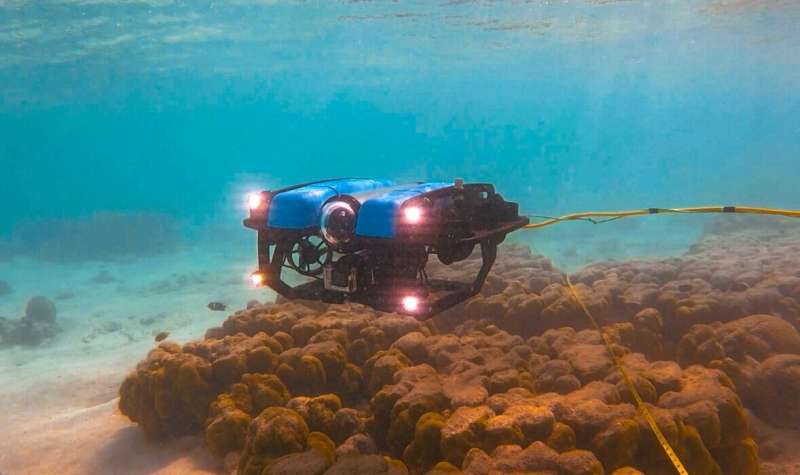New monitoring technque lets your remotely operated vehicle do the snorkelling

They have been trialling their new method, which involves using Remotely Operated Vehicles (ROVs) as a monitoring tool, at Macquarie's Marine Conservation and Management, and Advanced Marine Conservation and Management Master's degree courses, run at Heron Island on the Great Barrier Reef.
Assessments of fish biodiversity and movement form the backbone of monitoring programs. Greater biodiversity is correlated with greater ecosystem resilience, but documenting biodiversity can be difficult with very mobile subjects like fish.
Using ROVs, we can now assess and document fish without needing snorkellers or divers. We can monitor habitats that are off-limits to snorkellers because they are high risk, or potentially deeper environments.
There have been very few studies comparing the effectiveness of ROVs and more traditional methods for assessing fish in shallow marine systems. The recent paper looks at whether ROVs are an effective substitute for snorkellers when performing two common methods of fish monitoring: underwater visual surveys and fish tracking and behavior observation.
The evidence indicates that video from ROVs is just as good at detecting fish community structure in shallow reef communities as snorkellers with hand-held GoPros, and in some ways better. ROV video detected more species and more fish than snorkeller video, possibly because ROVs are more stable.
Marine science is likely to make far greater use of ROVs in the future. They can also be used as substitutes for divers when tracking biodiversity among deeper water species, but this application hasn't yet been assessed for reliability against conventional methods, unlike shallow water applications.
Students in the Master's courses are fully immersed in the research experience, from fieldwork to publication. Tess Nelson, a student on the course and co-author on the paper, said, "The course was an amazing opportunity to develop my research skills, especially being exposed to new technologies."
Macquarie University's Jane Williamson, says, "I have found that research-led teaching enhances student engagement, leading to a deeper understanding of the concepts taught. Acquisition of research skills is particularly important for masters-level students and these Macquarie courses offer learning and research in a realistic team environment. The students work hard, feel ownership of the project and love the experience."
More information: Vincent Raoult et al. Remotely operated vehicles as alternatives to snorkellers for video-based marine research, Journal of Experimental Marine Biology and Ecology (2019). DOI: 10.1016/j.jembe.2019.151253
Journal information: Journal of Experimental Marine Biology and Ecology
Provided by Macquarie University


















